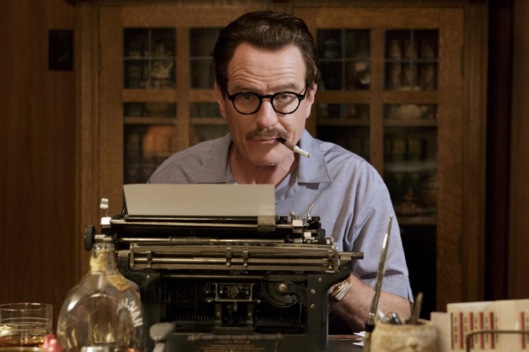Tags
2015, biography, bryan cranston, diane lane, drama, elle fanning, film, film review, helen mirren, jay roach, Movie, Movie review, Trumbo
By Heinrich Domingo
It is often easy to judge movies through looking into two primary aspects; production value and the validity of message. Through the years, the cinema has developed in a way that most visually beautiful movies bear good stories. In contrast, technically poor films bear crappy plots. This, in a way, makes film criticism easy. Then comes Trumbo. We see a film made near perfect by its outstanding main cast, commendable editing, and brilliant screenplay but it is problematic in its version of history. While we are mesmerized by its exquisite storytelling, the story it tells is somehow repulsing. Trumbo inspires ambivalence in its audience.

Not known to all, Hollywood was for some time plagued by some fascists’ fear of communism. Filmmakers known to have communist leaning were jailed then blacklisted in the show business. One prominent group is the Hollywood 10 who refused to answer queries from a Congress Committee that probes on “un-American activities.” This film focuses on the story of Dalton Trumbo, a member of the group. Despite being severely ostracized by the film community, Trumbo was able to write award-winning screenplays under various pseudonyms. This is a story on power resistance, political leanings, and man’s drive for survival. It is a tale of how one man took revenge against the society that nailed him on the cross using the same medium that denounced him.
Being a biography, the film was unable to fulfill historical accuracies expected from it. It framed its protagonist as righteous figure while his opponents as villainous characters. In order to satisfy its plot, social realities were oversimplified. In one scene, her daughter asks whether he is a communist. Trumbo responds using an allegory that if a school kid wants to share her food to a classmate who does not have lunch, she then is a communist. The film’s intention to vaguely discuss politics resulted in a bias portrayal of actual events.
Aside from this flaw, Trumbo makes no mistake in the way its story is told. It has a clear storyline which the viewers can easily follow. The plot has all the elements that the audience is guaranteed to love – an unfairly treated protagonist, his and his family’s suffering, his eventual sweet victory, and a closing speech that serves as a slap on the face to his detractors.
Bryan Cranston’s performance is one that will be forever remembered in his career. A strong yet undefined character like Trumbo can be difficult to portray on screen. Yet, Cranston’s acting was so empathic that viewers would likely attach the image of Dalton Trumbo to him.
The film is a reminder of the need for vigilant moviegoers. There is more than what is initially seen on the screen. Films, even those that are beautiful, cannot always serve as historical artifacts. Viewers need to scratch off the surface of a movie to know its bias. Trumbo is lucky because although it fails as an accurate reference of the past, it can still be watched as a great fiction film.

Excellent review! I did not watch this one yet, but it’s on my list of holiday season movies I missed due to parties and traveling. I appreciate your exploration of the content and how the content is told for the screen.
LikeLiked by 1 person
Tell us what you think about the film when you watch it 🙂
LikeLike
Just watched it and loving a good review. I think it’s nice that these movies are mainstream finally. Shows the nation’s growth and education in these matters
LikeLiked by 1 person
Thank you for reading our review.
LikeLiked by 1 person